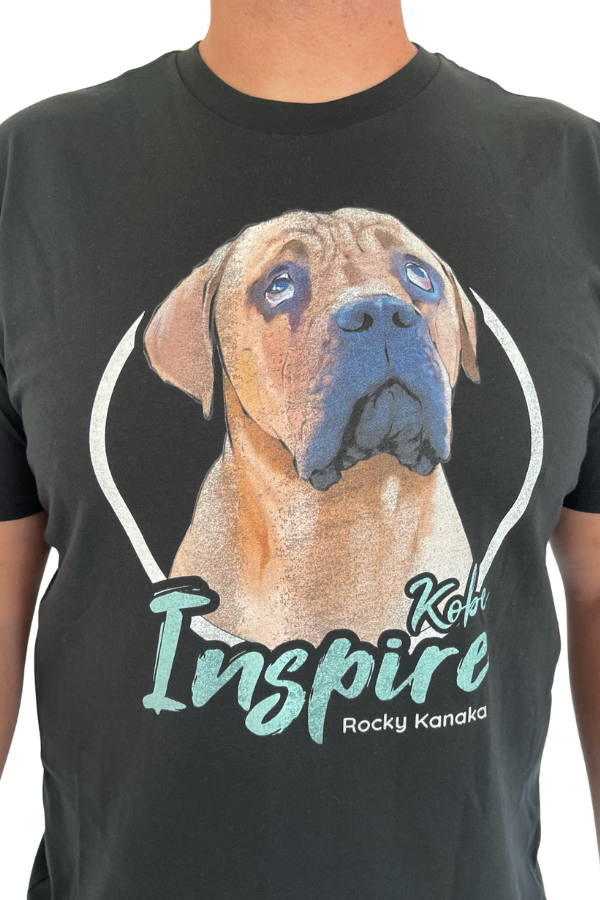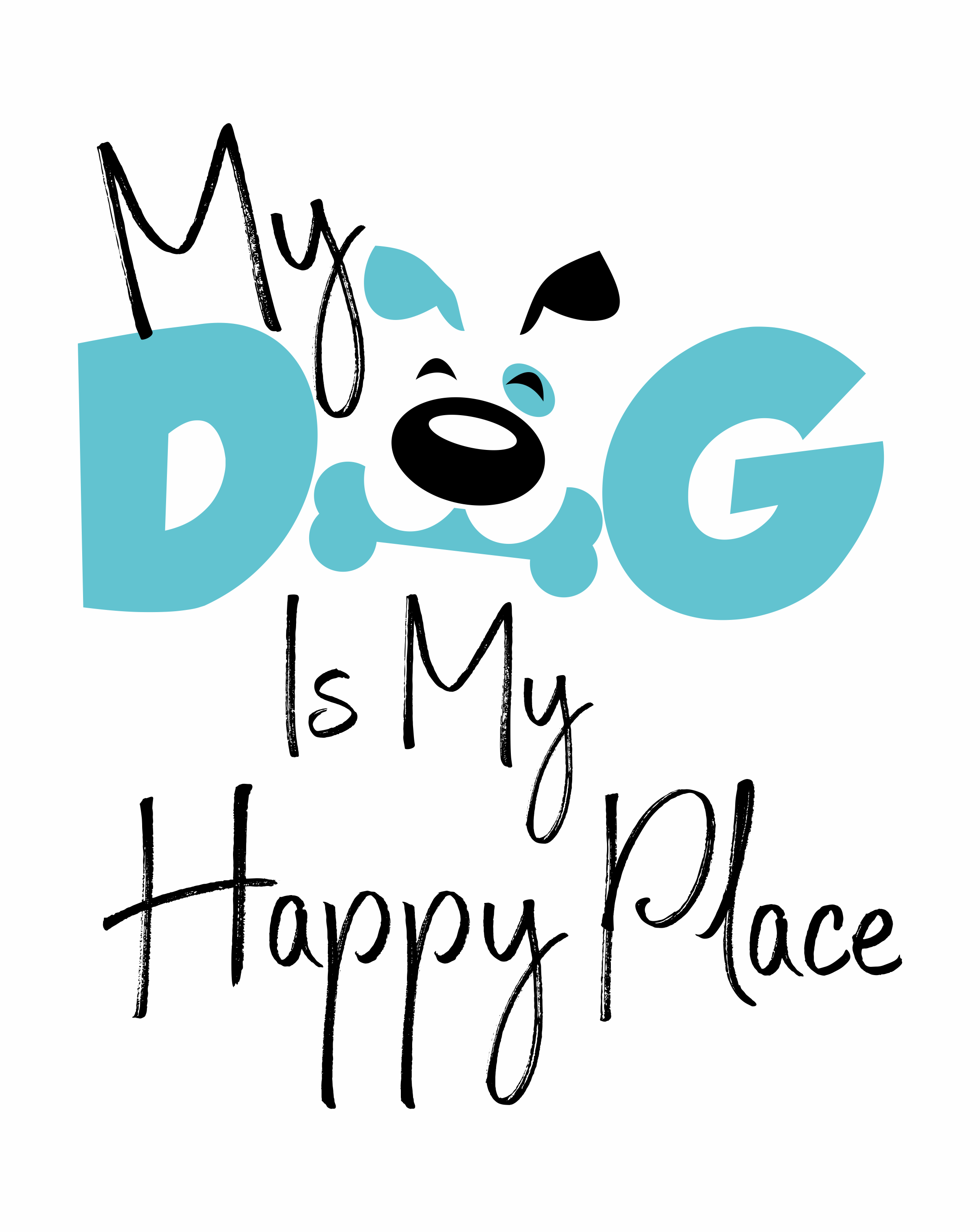On the Frontlines: The Diverse Breeds of Military Working Dogs
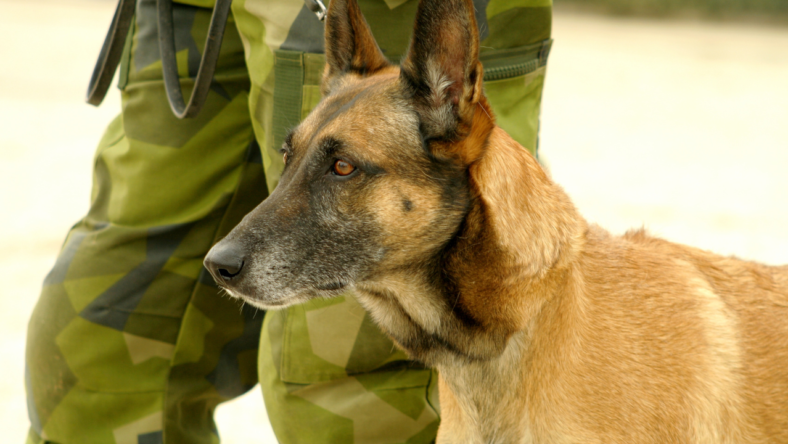
Military working dogs (MWDs) have played a crucial role in military operations for decades, providing invaluable services to military personnel around the world. These highly trained dogs are specifically bred and trained to assist in a variety of tasks, such as detecting explosives, locating enemy combatants, and conducting search and rescue missions
Most Common Breeds Used For Military Dogs

One of the most popular military dog breeds is the German Shepherd. Known for their intelligence, versatility, and loyalty, German Shepherds have been used in military operations for various tasks, including bomb detection, tracking, and patrol work.
1. German Shepherd (Alsatian)
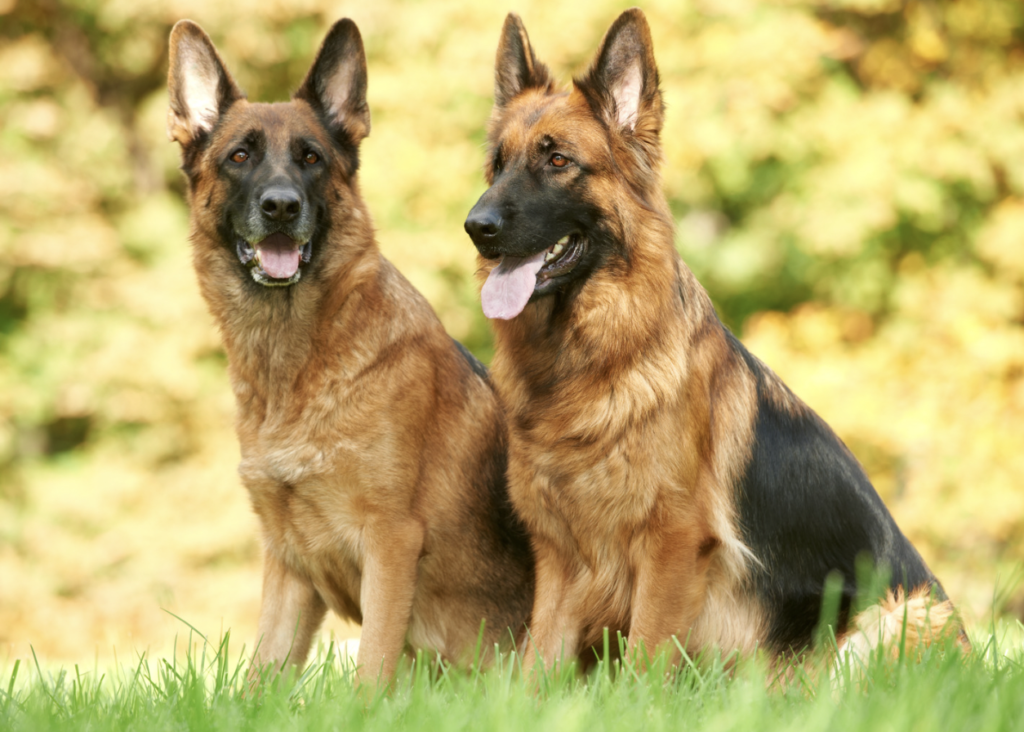
One of the most well-known and widely used breeds in military service, the German Shepherd is known for its intelligence, loyalty, and versatility. German Shepherds are utilized in various roles in the military, including as patrol and detection dogs, as well as for search and rescue missions. They are trained to detect explosives, drugs, and other dangerous substances, and are often used in combat zones to help locate enemies or track down individuals. German Shepherds are also commonly used in the military for their ability to perform tasks such as scouting, guarding, and apprehending suspects.
2. The Belgian Malinois
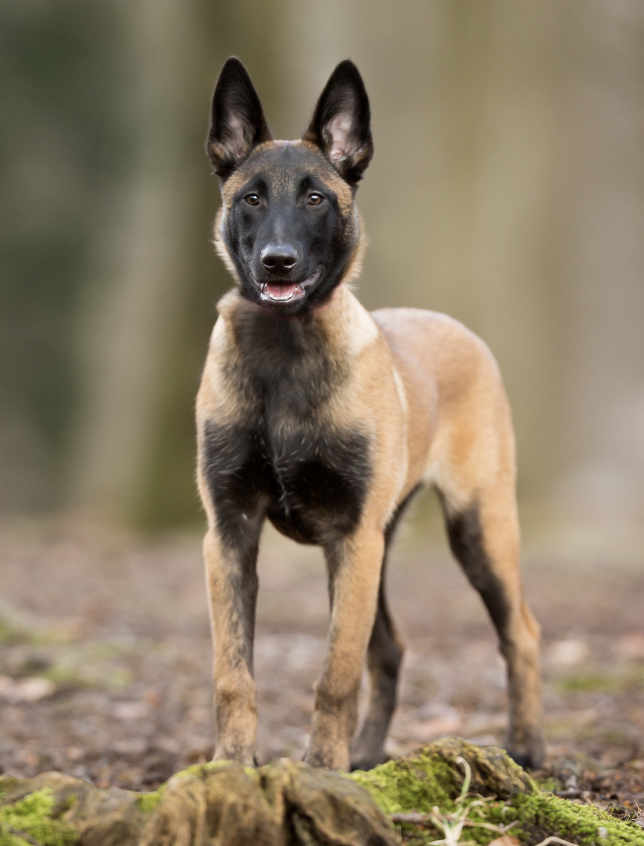
The Belgian Malinois is used in military service due to its high energy levels, intelligence, and agility. Belgian Malinois are often used as patrol and detection dogs, and are particularly known for their exceptional tracking and scent detection abilities. They are trained to detect explosives, drugs, and other hazardous materials, making them a valuable asset in combat situations. Belgian Malinois are also used for tasks such as search and rescue, as well as apprehending suspects. They are highly trainable and can excel in various environments, making them a preferred breed for military operations
3. Dutch Shepherds
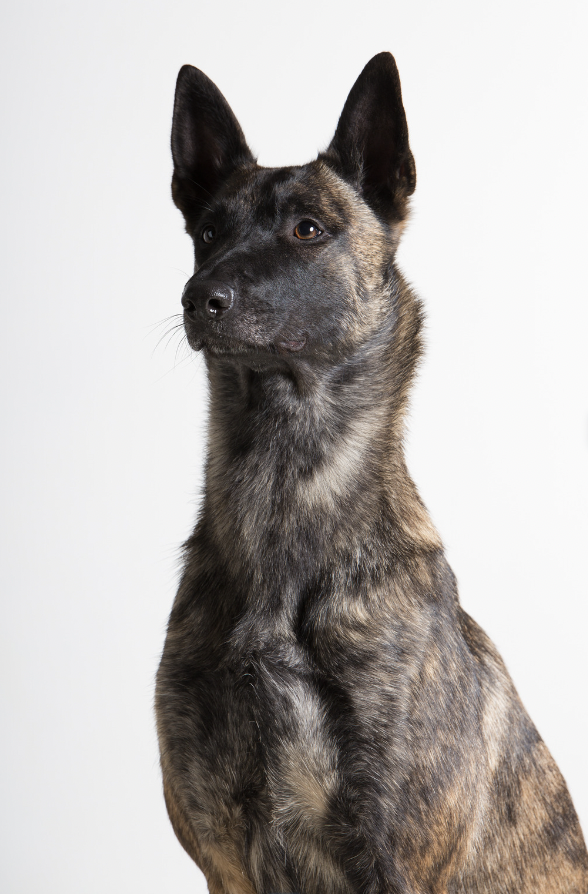
Dutch Shepherds are another breed that is commonly used in military service due to their agility, intelligence, and versatility. They are often employed as patrol and detection dogs, and are known for their ability to excel in high-stress situations. Dutch Shepherds are trained to detect explosives, drugs, and other hazardous materials, and are also used for tasks such as tracking and apprehending suspects. They are highly adaptable and can be trained to perform various roles, making them a valuable asset in military operations.
4. Labrador Retrievers
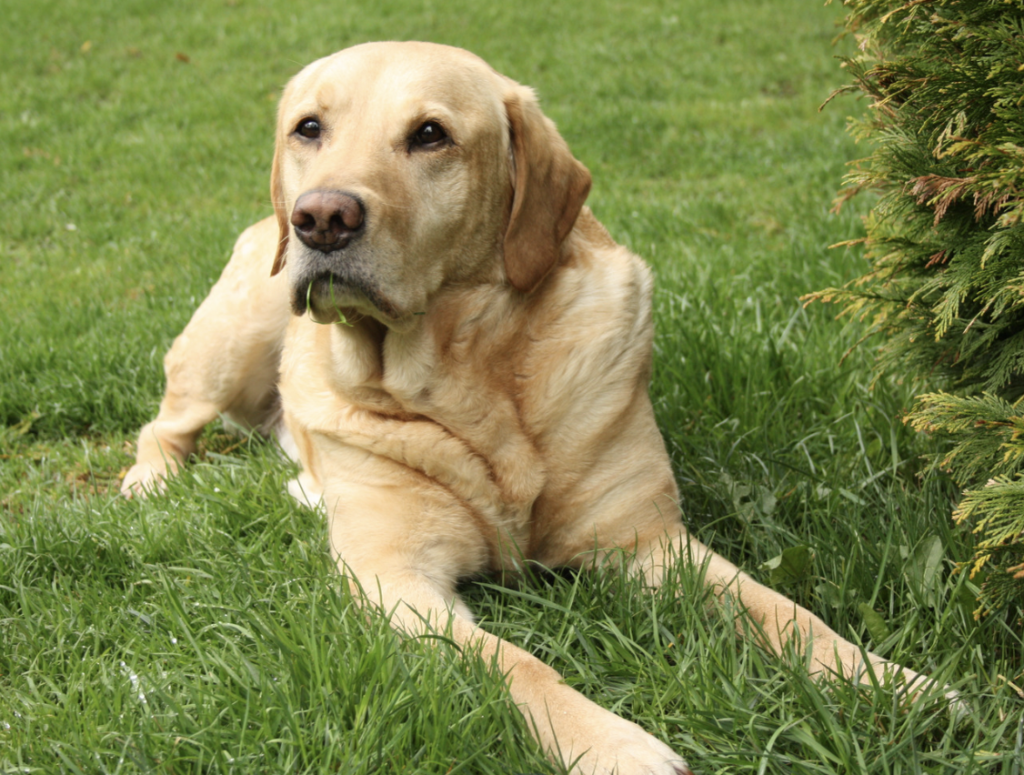
Labrador Retrievers, known for their friendly and obedient nature, are also used as military service dogs. While they may not have the same guarding or apprehending abilities as German Shepherds or Belgian Malinois, Labradors excel in roles such as detection and search and rescue. They are often used as explosive detection dogs, trained to detect explosives and other dangerous materials in different environments. Their friendly and approachable demeanor also makes them suitable for interacting with civilians during missions or in humanitarian operations
5. Boxers
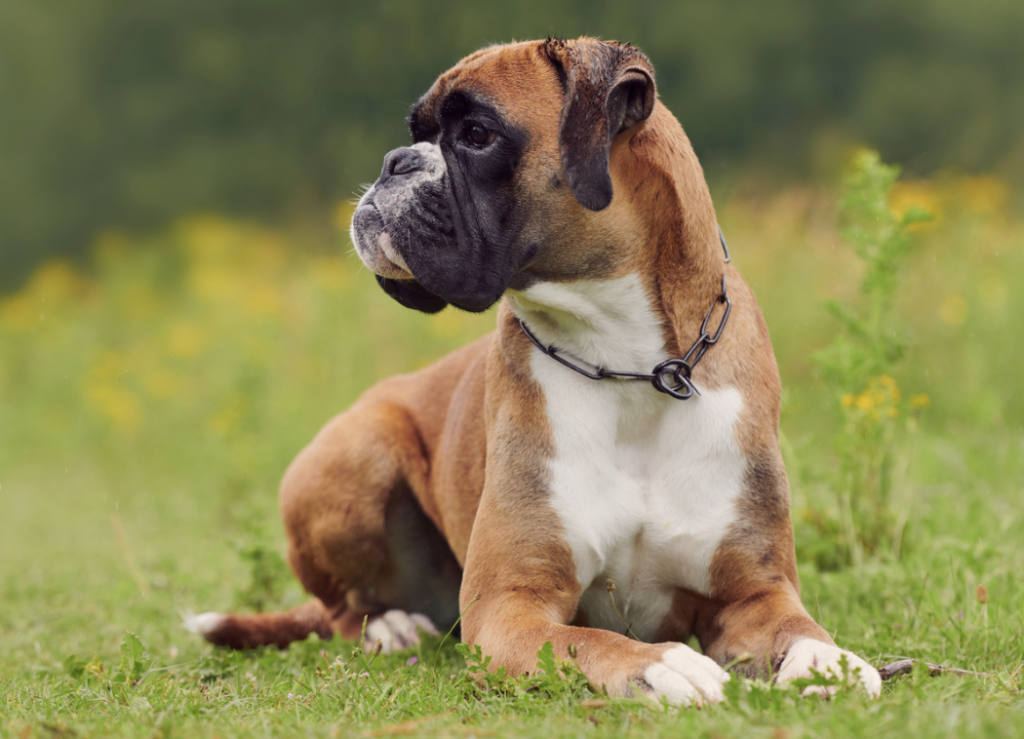
Boxers are not as commonly used in military service as some of the other breeds mentioned above, but they are known for their physical strength, endurance, and intelligence. Boxers are typically used as patrol and detection dogs, and are trained to detect explosives, drugs, and other dangerous substances. They are also used for tasks such as search and rescue, and can excel in different environments. Boxers are known for their loyalty and protective nature, making them suitable for guarding and apprehending suspects.
6. Belgian Tervuren
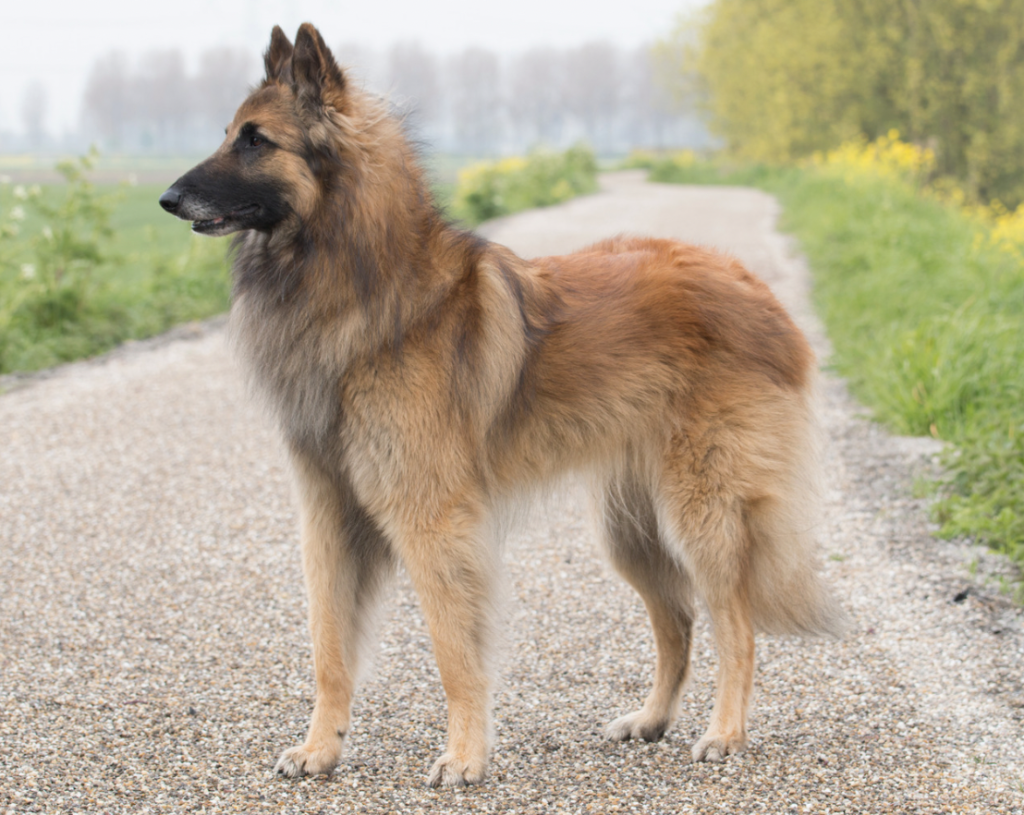
Highly intelligent and agile, used for tasks such as bomb detection, patrol work, and search and rescue.
7. Chesapeake Bay Retriever
Excellent swimmers, used for tasks such as waterborne explosives detection and search and rescue in aquatic environments.
8. Australian Cattle Dog
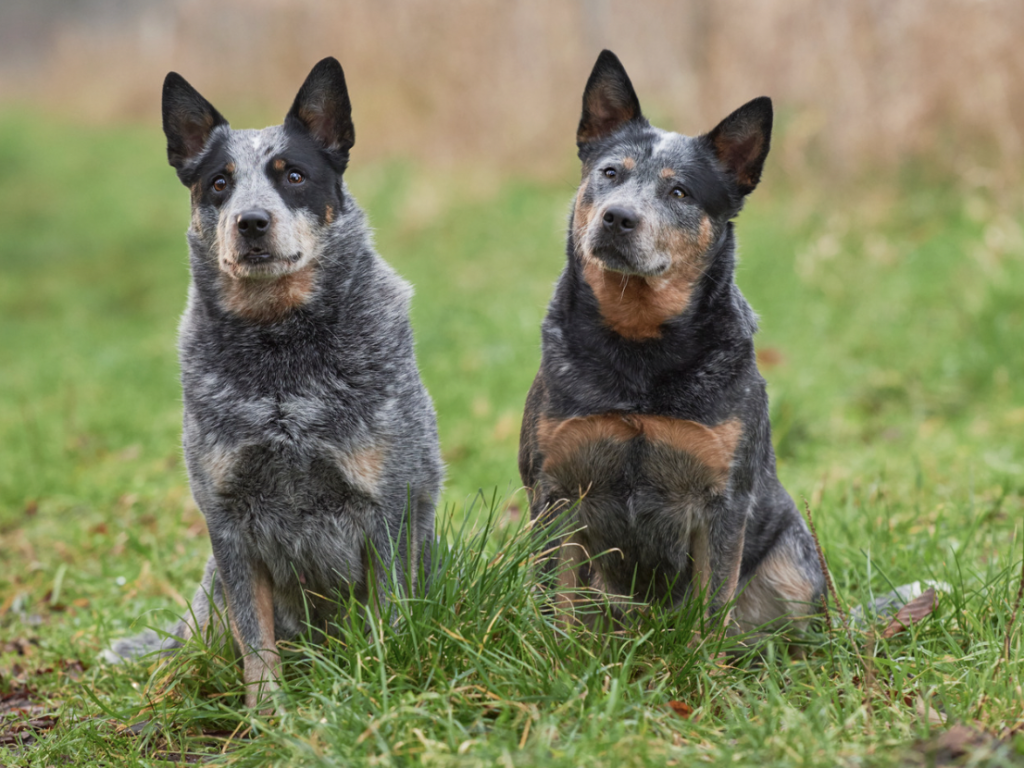
Known for their endurance and herding instincts, used for tasks such as search and rescue, tracking, and patrol work.
9. Border Collie
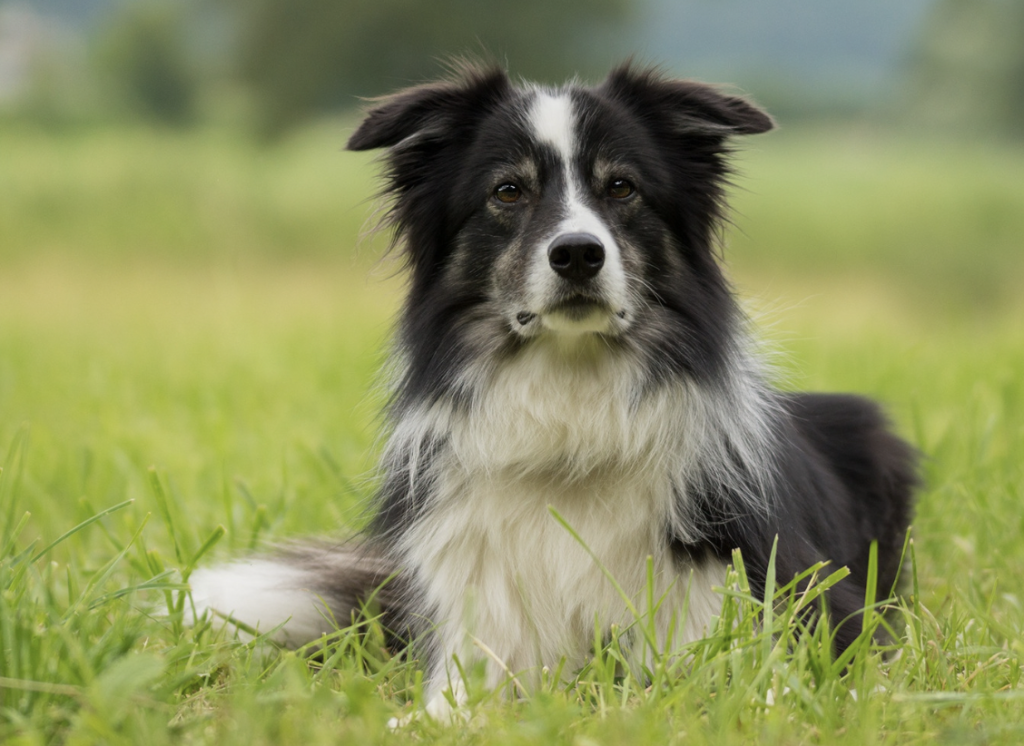
Highly intelligent and trainable, used for tasks such as detection work, tracking, and search and rescue.
10. Springer Spaniel
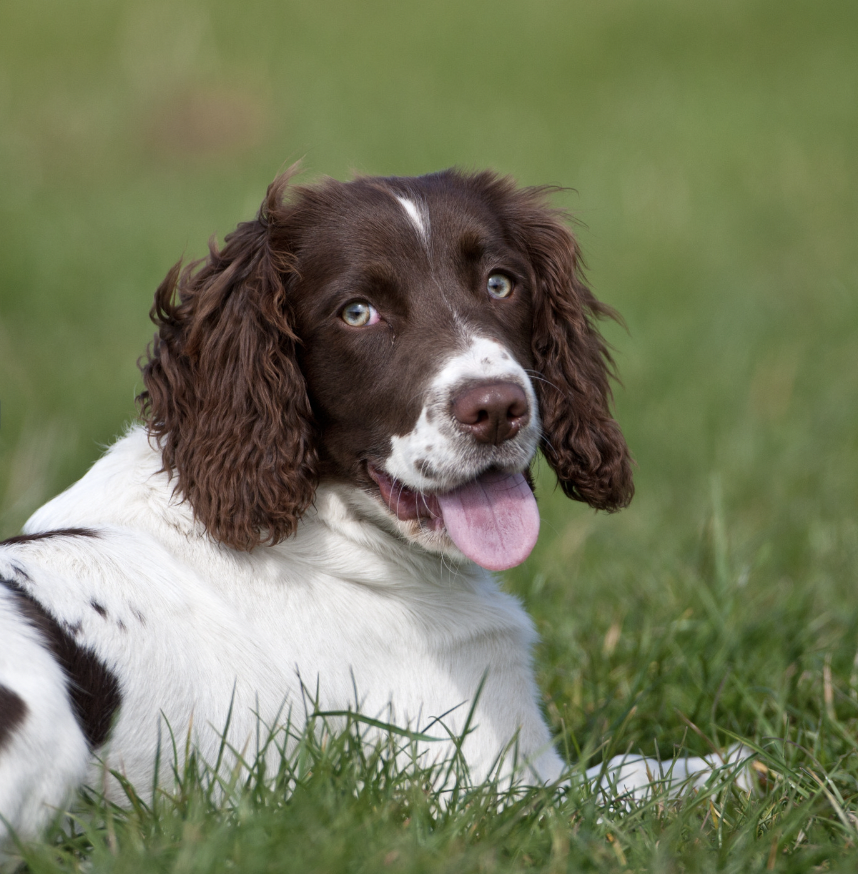
Known for their excellent sense of smell and agility, used for tasks such as explosives detection, search and rescue, and tracking.
Not All Breeds Can Be Military Working Dogs
While many dog breeds are eligible for military working dog programs, certain breeds may be less commonly used due to factors such as temperament, size, or physical attributes. For example, dogs like Great Danes, and other giant breeds are typically not used as military working dogs due to their size and potential challenges in training and deployment, also many giant breeds have inherent health issues.
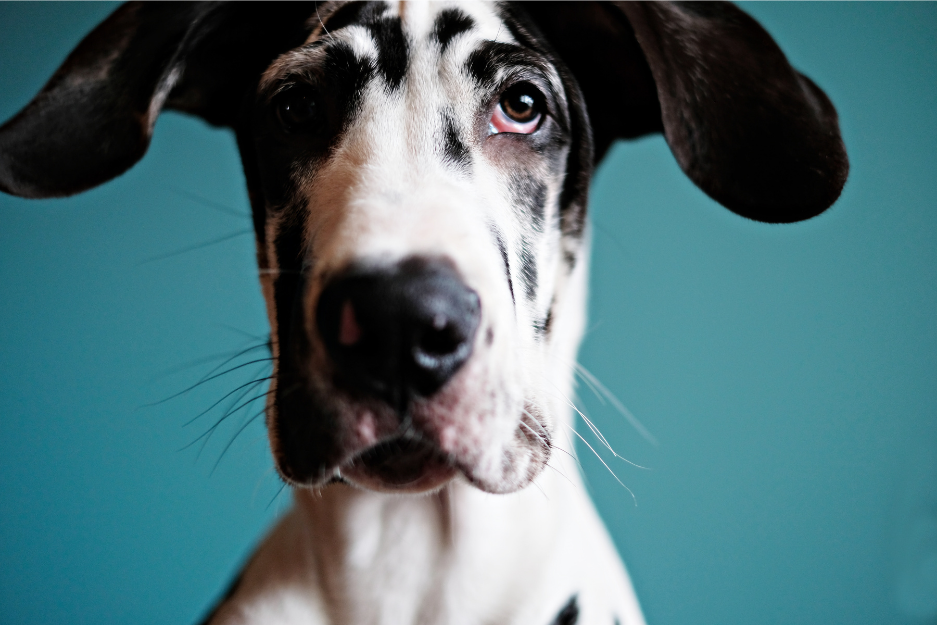
Some other examples of breeds that are not typically used in military service include toy breeds such as Chihuahuas, Pomeranians, or Shih Tzus which are not used in military service due to their small size and low physical endurance.
Can Pit Bulls Serve In The Military?
People often ask if Pit Bulls can be used in military service dog roles. While Pit Bulls can be loyal, intelligent, and trainable, they are also known for their high energy levels and strong prey drive. These traits, while useful in certain working dog roles such as detection or tracking, may not be ideal for all military tasks. Additionally, some military organizations or branches may have breed-specific restrictions due to concerns about potential liability, public perception, or breed-specific legislation in certain jurisdictions.
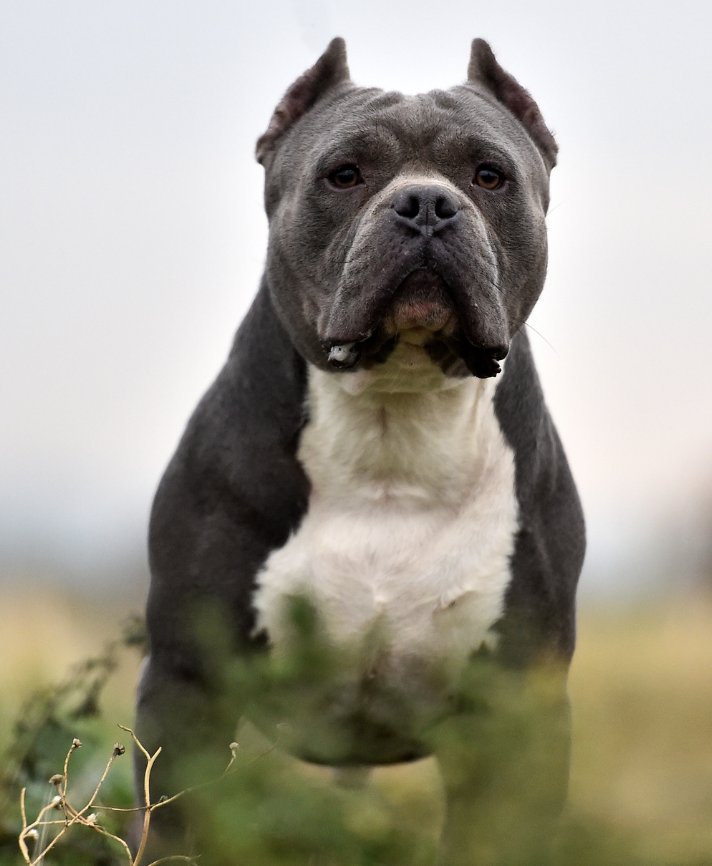
it’s worth mentioning that there have been exceptions where Pit Bulls as well as other “bully” breeds, have been used in some specialized military roles. For example, in recent years, some military organizations have started to use Pit Bulls in roles such as explosives detection, search and rescue, and even as therapy dogs for soldiers suffering from post-traumatic stress disorder (PTSD).
Sergeant Stubby, the Pit Bull Hero: A Tale of Valor in World War I
A pit bull called Sergeant Stubby has been hailed as the most decorated war dog of World War I, and the only dog to be nominated for rank and promoted to sergeant through combat. Serving for 18 months and participating in 17 battles on the Western Front, Stubby displayed remarkable bravery and instincts. He warned his platoon of a poison gas attack, comforted the wounded, and single-handedly captured a German soldier. Despite being a Pit Bull, a breed often stereotyped unfairly, Sergeant Stubby’s story is a testament to the incredible abilities and contributions of military service dogs, and a reminder that breed should not define a dog’s potential in military roles. His legacy as a hero continues to inspire generations and highlight the remarkable bond between dogs and humans in times of war.
What happens to Military Dogs When They Retire?

When these courageous dogs retire or are no longer fit for active duty, they deserve a loving home where they can enjoy their well-deserved retirement. That’s where adoption programs for military service dogs come into play, providing an opportunity for these four-legged heroes to be adopted into civilian homes and live out the rest of their lives in comfort and care.
Military service dogs are often retired from active duty due to age, health issues, or other reasons that may limit their ability to continue serving in the field. In recognition of their service and sacrifice, many military branches, such as the U.S. Army, U.S. Marine Corps, and U.S. Air Force, have adoption programs in place to help these dogs find forever homes. These programs aim to connect retired service dogs with loving families who can provide them with the care, attention, and affection they deserve.
Benefits of Adopting A Military Dog
These dogs are highly trained and well-disciplined, with valuable skills and behaviors that can make them excellent companions for civilian life.
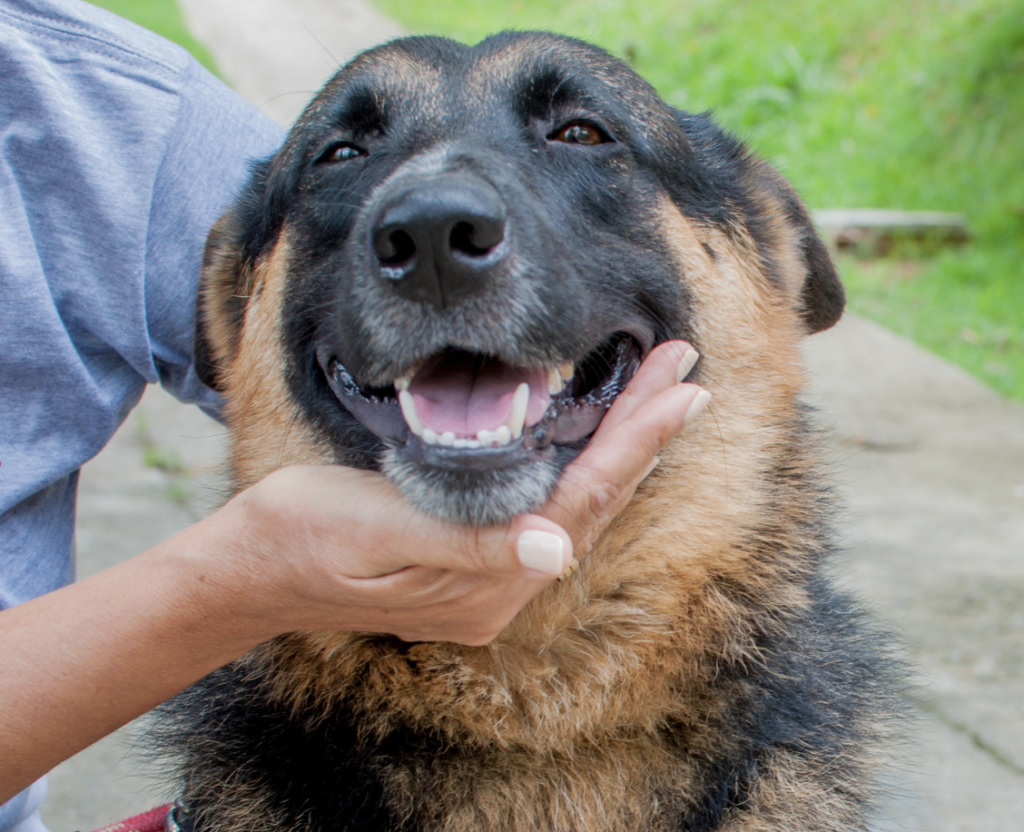
One of the notable benefits of adopting a retired military service dog is their temperament. These dogs have undergone rigorous training and exposure to different environments, making them adaptable and well-behaved. They are typically socialized with other dogs, humans, and various situations, which can make them more relaxed and well-mannered in different settings. Additionally, these dogs are often accustomed to following commands and routines, making them easy to integrate into a new home and family.
Furthermore, adopting a retired military service dog can be a meaningful way to give back to these brave animals who have served their country. These dogs have dedicated their lives to protecting and serving their human handlers, and adopting them provides an opportunity to show gratitude for their service by giving them a loving home. It’s a chance to offer them the care and comfort they deserve, allowing them to live out their retirement years in a safe and nurturing environment.
Adoption programs for military service dogs typically have certain requirements and processes in place. These may include completing an application, undergoing a background check, and providing a suitable living environment for the dog. Since these dogs are highly trained, potential adopters may need to demonstrate their ability to meet the physical, mental, and emotional needs of the dog. Additionally, there may be adoption fees or other costs associated with the adoption process, which can vary depending on the organization and location.
Adopting a military working dog not only provides a loving home for a deserving canine hero but also helps to raise awareness about the importance of these dogs in military operations.
Military Dogs For Adoption
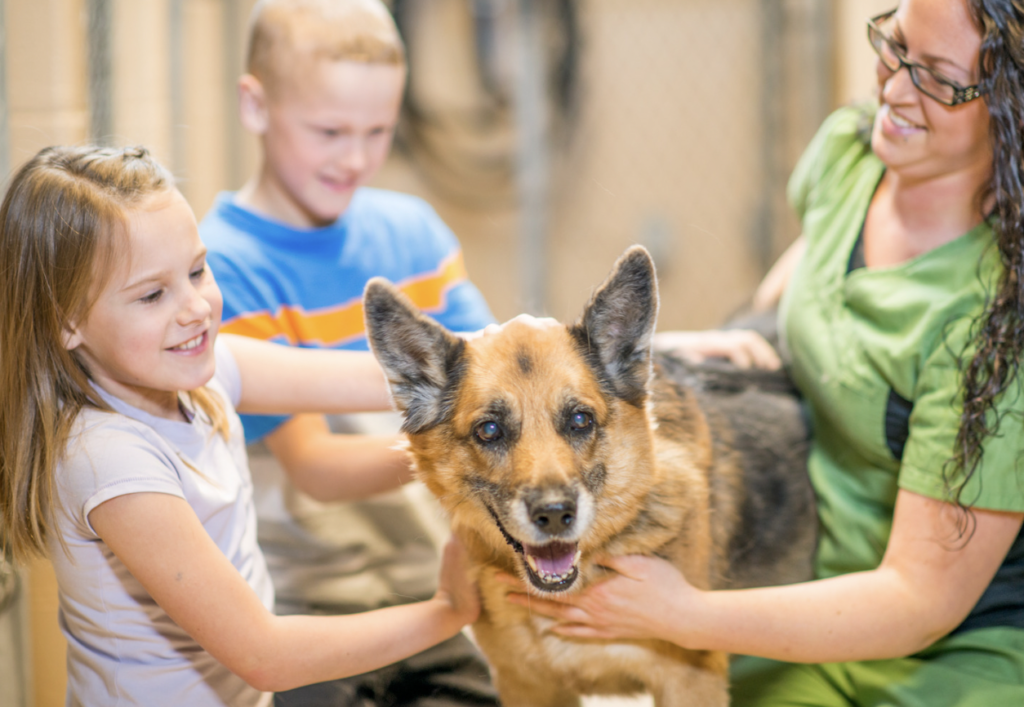
1. Military Working Dog Adoptions
This organization is dedicated to finding suitable homes for retired military working dogs and provides information and resources for potential adopters.
2. United States War Dogs Association (USWDA)
USWDA is a nonprofit organization that assists in the adoption process of retired military working dogs and helps connect them with loving homes.
3. Mission K9 Rescue
This organization rescues and rehabilitates retired military working dogs and other working dogs, and facilitates their adoption into loving homes.
4. Lackland Air Force Base Military Working Dog Adoptions
Retired military working dogs from Lackland Air Force Base, which is a major training center for military working dogs, are available for adoption through their official adoption program.
5. Saveavet
Saveavet is a nonprofit organization that specializes in the rescue and adoption of retired military and law enforcement working dogs, including military working dogs.
Some dogs training to become military dogs don’t meet the DoD criteria for governement work. You can also seek out these dogs as well.
Honoring Military Working Dogs
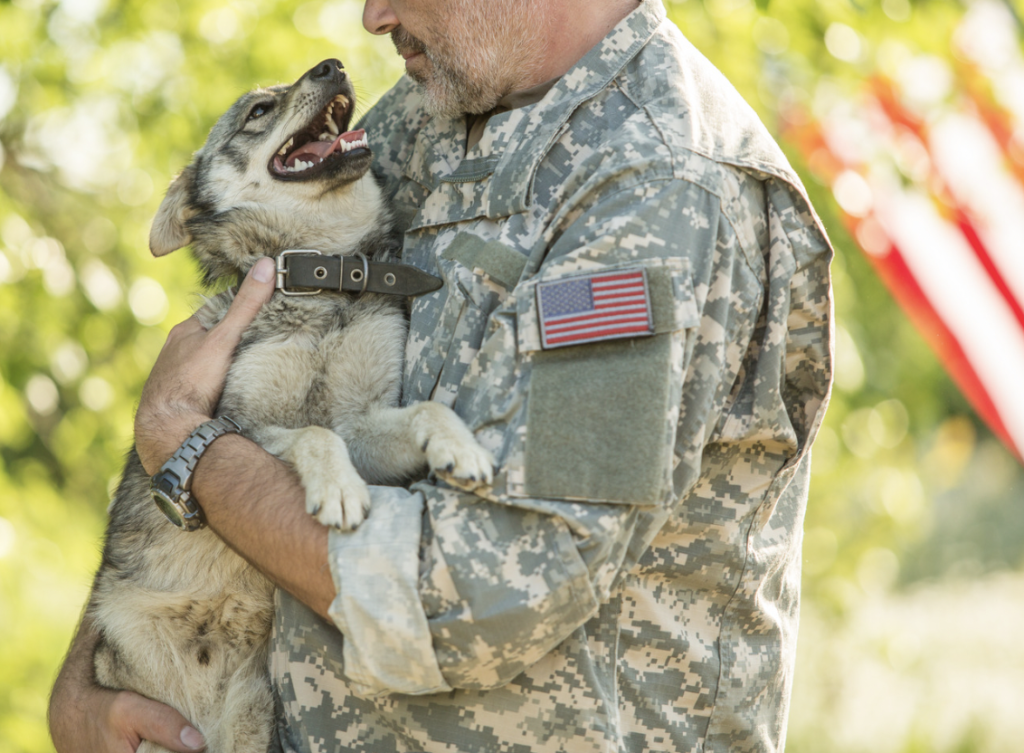
To honor the service and sacrifice of military working dogs, there are various initiatives and memorials dedicated to them. One notable example is the Military Working Dog Teams National Monument, located at Lackland Air Force Base in San Antonio, Texas. The monument features life-size bronze statues of military working dogs and their handlers, paying tribute to their partnership and dedication. It serves as a reminder of the vital role that military working dogs play in keeping our country safe.
In addition to memorials, the U.S. Postal Service has also issued commemorative stamps featuring military working dogs. These stamps showcase the bravery and dedication of these dogs and their handlers, recognizing their contributions to the nation’s security.
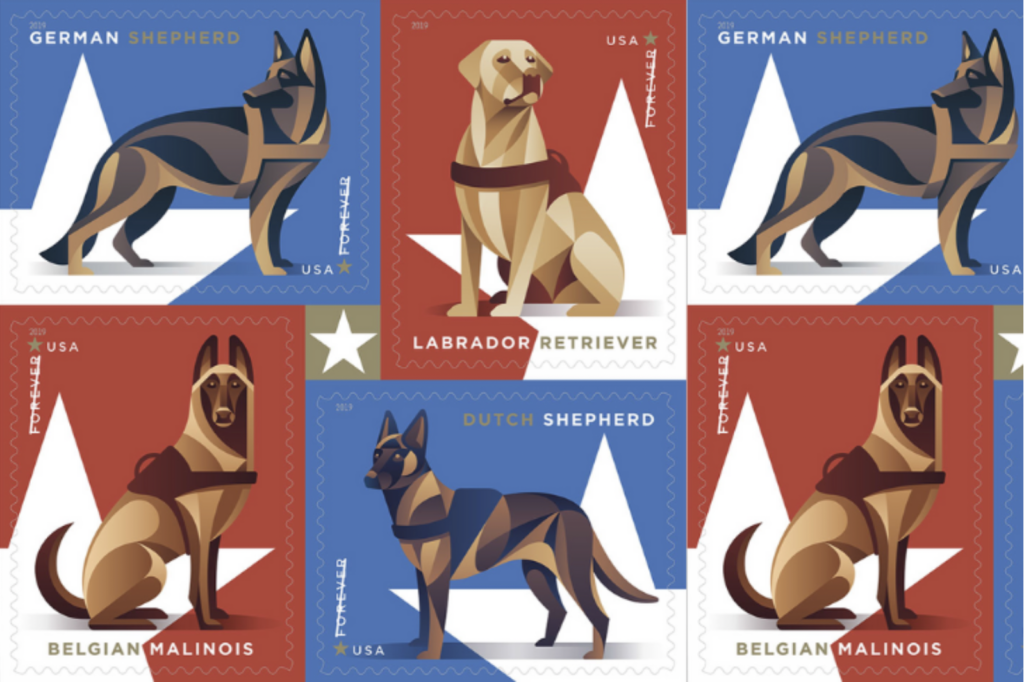
How to Support Military Working Dog Programs
Volunteer
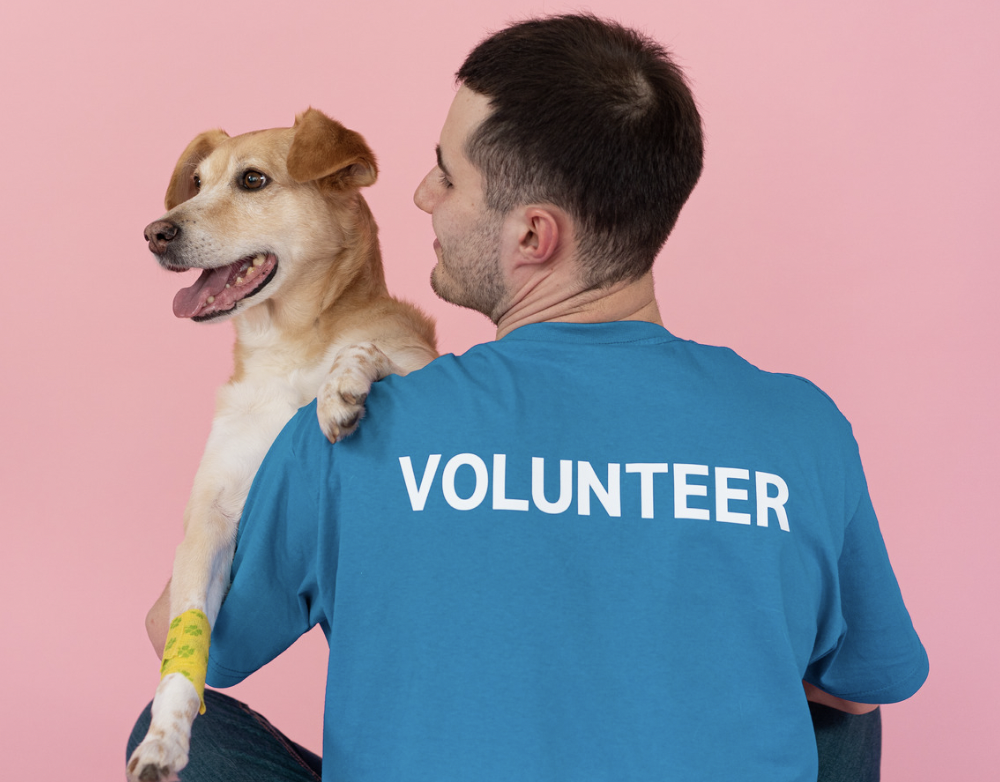
There are several organizations that specifically focus on supporting military working dogs and their handlers, and volunteering with these organizations can be a great way to make a direct impact. Here are some examples of organizations where you can volunteer:
- United States War Dogs Association (USWDA): USWDA is a nonprofit organization that supports military working dogs, their handlers, and veterans. They offer various volunteer opportunities, such as assisting with fundraising events, participating in educational programs, and supporting veterans’ initiatives.
- Mission K9 Rescue: Mission K9 Rescue is a nonprofit organization that rescues, reunites, rehomes, and rehabilitates retired military working dogs. They often need volunteers to help with tasks such as transporting dogs, providing foster care, and assisting with administrative work.
- Dogs on Deployment: Dogs on Deployment is a nonprofit organization that helps military members find temporary homes for their pets during deployment or other service commitments. Volunteers can offer to be foster homes for these pets or assist with administrative tasks.
- Support Military Working Dogs (SMWD): SMWD is a nonprofit organization that provides support to military working dogs and their handlers through care packages, financial assistance for veterinary care, and other resources. They often need volunteers to help with packing care packages, fundraising events, and administrative work.
- Local Veterans’ Organizations: Many local veterans’ organizations, such as American Legion or Veterans of Foreign Wars (VFW), may have programs or initiatives that support military working dogs and their handlers. You can inquire with your local chapter about volunteer opportunities or initiatives related to military working dogs.
- Military Bases: Some military bases may have volunteer programs that involve supporting military working dogs and their handlers. You can inquire with the base’s volunteer coordinator or public affairs office to see if there are any opportunities available.
Donate
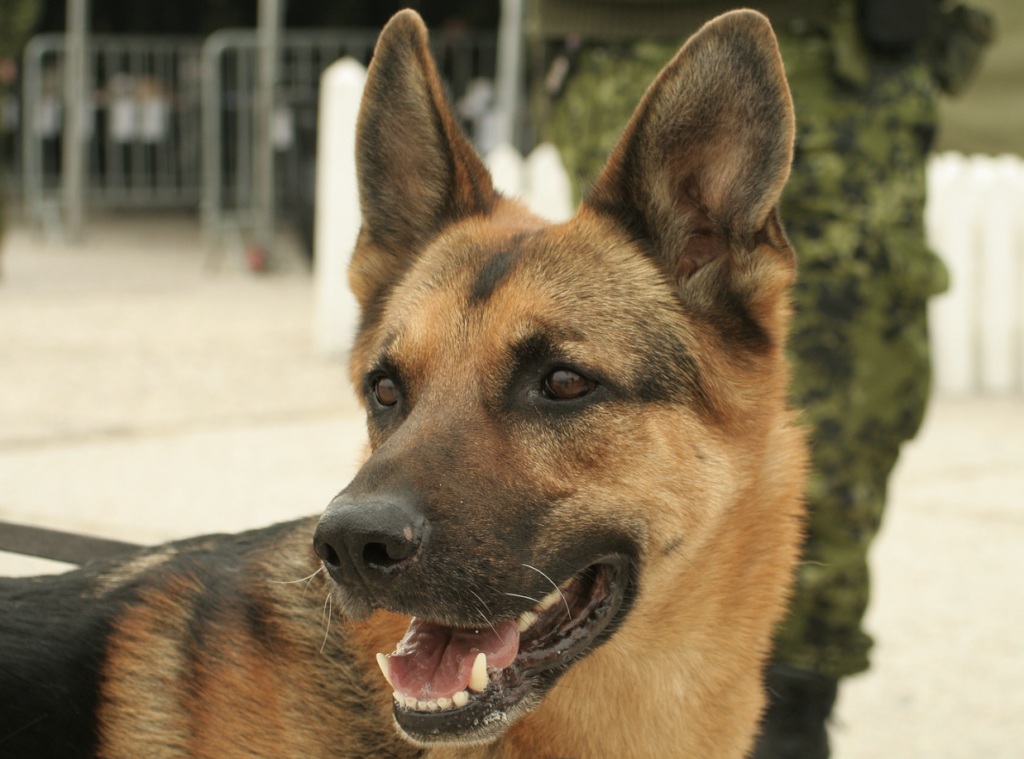
If you are interested in donating money to organizations that specifically support military working dogs and their handlers, there are several reputable organizations that accept donations for this cause. Here are some examples:
- United States War Dogs Association (USWDA): USWDA is a nonprofit organization that supports military working dogs, their handlers, and veterans. They accept donations on their website, which can be designated specifically for their various programs, such as providing care packages to deployed handlers, offering financial assistance for veterinary care, and supporting educational initiatives.
- Project K9: To ensure the best quality of life for our nation’s retired Military Working Dogs and Police K-9 Heroes by providing assistance with medical costs, food, rehabilitation, adoption, and end of duty services.
- Support Military Working Dogs (SMWD): SMWD is a nonprofit organization that provides support to military working dogs and their handlers through various programs, including care packages, financial assistance for veterinary care, and other resources. They accept donations on their website, which can be designated for specific programs or used to support their overall mission.
- Dogs on Deployment: Dogs on Deployment is a nonprofit organization that helps military members find temporary homes for their pets during deployment or other service commitments. They accept donations on their website, which can be used to support their mission of keeping military pets safe and cared for during times of separation.
- K9s For Warriors: K9s For Warriors is a nonprofit organization that pairs rescue dogs with veterans with service-connected disabilities, including post-traumatic stress disorder (PTSD) and traumatic brain injury (TBI). They accept donations on their website, which can be used to support their program of providing trained service dogs to veterans in need.
- Canine Companions for Independence (CCI): CCI is a nonprofit organization that trains and provides service dogs to individuals with disabilities, including veterans with mobility impairments and PTSD. They accept donations on their website, which can be designated specifically for their programs that serve veterans.
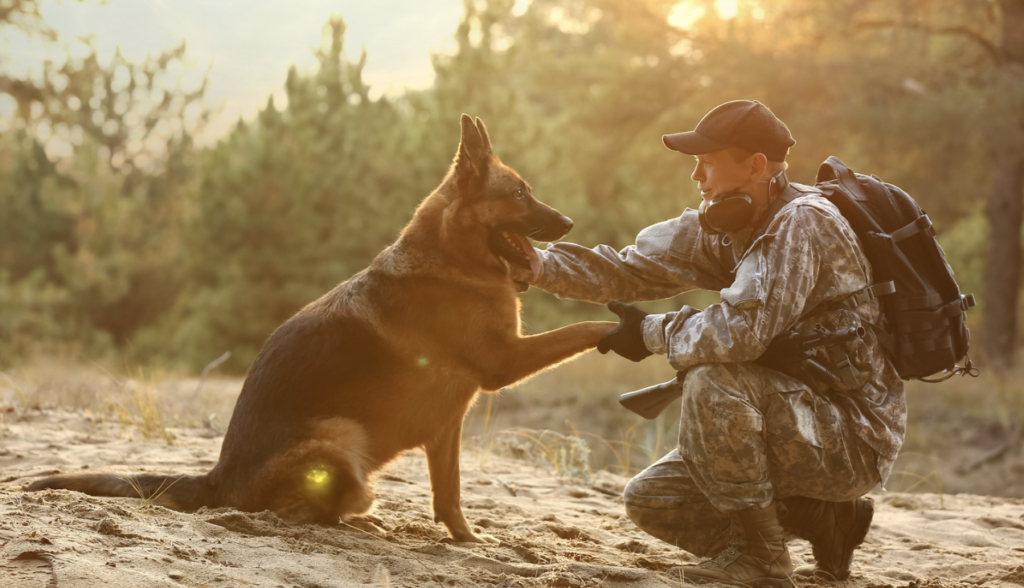
FAQS
How are military working dogs selected and trained? A: Military working dogs are carefully
Military working dogs are carefully selected based on factors such as breed, temperament, and physical attributes. They undergo rigorous training programs that include obedience training, detection training, and specialized task training.
What tasks do military working dogs typically perform?
Military working dogs perform a variety of tasks, including bomb and explosives detection, narcotics detection, patrol work, tracking, search and rescue, and more.
Can civilians adopt retired military working dogs?
Yes, many military working dogs are available for adoption by civilians through official adoption programs after their retirement from service. See our list above.
How can I adopt a retired military working dog?
Adoption processes may vary, but typically interested individuals can apply through official military working dog adoption programs or organizations, which may have specific requirements and procedures. See our list above.
How do military working dogs contribute to military operations?
Military working dogs provide essential services in military operations, such as detecting explosives and narcotics, locating enemy combatants, conducting search and rescue missions, and providing security and patrol support.
Are military working dogs considered as military personnel?
While military working dogs are highly regarded for their service, they are not considered as military personnel but rather as valuable assets and equipment.
How are military working dogs honored and recognized for their service?
Military working dogs are honored in various ways, including memorials, stamps, and other recognition programs that highlight their bravery and dedication.
What are some common breeds that are not typically used in military working dog programs?
Breeds such as Great Danes, and other giant breeds are not commonly used in military working dog programs due to their size and other factors. Also toy breeds are not used.
What specialized gear do military working dogs use?
Military working dogs may use specialized gear such as harnesses, vests, and other equipment designed to provide comfort, safety, and control during missions.
How long is the typical service life of a military working dog?
The service life of a military working dog varies depending on factors such as breed, health, and performance. On average, military working dogs may serve for about 8-10 years before retiring.
Can military working dogs be used in civilian law enforcement?
Yes, military working dogs can be utilized in civilian law enforcement agencies for tasks such as bomb detection, narcotics detection, and search and rescue, among others.
How are military working dogs cared for during deployment?
Military working dogs receive specialized care during deployment, including food, shelter, medical care, and training to ensure their well-being and effectiveness in carrying out their tasks.
How are military working dogs trained for combat situations?
Military working dogs undergo intensive training that simulates combat situations, including exposure to loud noises, gunfire, and other stressors to prepare them for the challenges they may face in real-life missions.
Can military working dogs be used in civilian disaster response efforts?
es, military working dogs can be utilized in civilian disaster response efforts for tasks such as search and rescue, locating survivors, and detecting hazards or explosives.
How can I support military working dogs and their handlers?
You can volunteer with organizations that focus on supporting military working dogs. You can also donate. I have lists of both in the article above
Related Articles:
- 11 Places to Get Service Dogs for Veterans
- Australian Cattle Dog Nearly Put to Sleep, Now She’s An Award Winning Service Dog
- Here’s How 30 American K9 Dogs Escaped from Ukraine


